
The November 13-14 attacks in Paris require an unambiguous response against the terror of the Islamic state and imperialism, both; This strong piece examines this, state of emergency in France, our responsibilities
Solidarity with the victims!
November 13, 2015 represents a change in the national and international political situation. The Islamic State (IS, Daesh) has struck again; and even more strongly. In January, the targets were the journalists of Charlie Hebdo, police and Jews. This time, it was the youth of the country that was the target. They did not kill just anyone, just anywhere: they attacked young people, young people in all their colours, whatever their origins, their religion (if they had one), their political beliefs. At least 130 dead, over 350 wounded – at the very least a thousand direct witnesses of the carnage. Many of us have relatives among the victims and, if not, we have friends who have. The shock wave, the emotion, is profound.
There is no mystery about the objective pursued by the commandos of the Islamic State: to fracture society through terror. To create a situation where war against one another is imposed; where fear draws up impassable barriers between citizens according to their origins, religions, lifestyles, identities – to dig a ditch filled with blood within the Muslim religion itself, forcing believers to choose sides. Whoever is not with us in our inhuman acts is against us, and becomes a “legitimate” target.
The attacks in Paris were among the bloodiest acts in the world perpetrated by the Islamic State and other similar movements which serve the same destructive logic. Our solidarity is international, it is directed especially towards those who, in other countries are fighting them at the risk of their lives: in Syria and Iraq, in Lebanon and in Bamako, in Pakistan and in Turkey… We must first affirm our compassion, our identification, our brotherhood with the victims and with their families.
At such a time, we of course continue the class struggle, to support the struggle of all the oppressed; but beyond that, we defend humanity against barbarism. The humanist dimension of revolutionary commitment remains our guiding light. Any progressive politics begins with indignation, with emotion. It is not of course limited to that, but that is its starting point. Let us not counter-pose thinking and weeping! Let us not waffle in jargon, let us not write with a pen of ice! Here and now, let us help the victims and their families, take part in mourning, respect minutes of silence, take part in solidarity events. We are part of this movement – and it is from here that we can explain our positions.
Whatever the role of imperialism, the Islamic State is responsible for its actions
Revolutionaries must clearly and definitely reject fundamentalist barbarism. It must be fought – by our methods, according to our orientation and not that of our leaders – but it must be actively defeated.
Under the impact of events, left organizations, associations and unions have caved in to the call for national unity; others, in a reaction against this, have so much emphasized the very real political and historical responsibilities of Western imperialism that the denunciation of the Islamic State has become inaudible. As the days have passed, the positions have often been clarified. So much the better. But we can still read plenty of articles which consider that although the attacks “had no excuse” it was necessary above all to take into account “the context” – since the analysis of that context is essentially reduced to the enumeration of imperialist misdeeds one could conclude that the fundamentalist movements are merely reacting to the actions of the great powers and we should somehow grant them extenuating circumstances. It is necessary to remove any ambiguity on this question.
Strangely enough, many writers on the left vigorously denounce the fundamentalist attacks, but refuse to condemn by name, explicitly, the movements that commit them. Stranger still, many organizations do not hesitate to do so (naming the guilty, explaining their reactionary character), but do not draw any practical consequence from that. When it comes down to tasks, the fight against terrorism and against these fundamentalisms is no longer mentioned; which, by the way, leaves our rulers with a monopoly of specific responses. We are generally in agreement to attack imperialism and its wars, destructive capitalist globalization, inequality and discrimination, the ideology of the clash of civilizations, racism – including Islamophobia – the legacies of the colonial past, security policies and states of emergency, appeals for national unity and social peace… To attack, therefore, some of the causes and the consequences of the dramatic events that we are living through.
But we must also combat the influence of Daesh (among others) in our own societies and concretely express our solidarity with popular resistance in developing countries torn by religious fanaticism – an internationalist duty if ever there was one! On this, there is a “blind spot” in much of the radical left, even the left that does not sink into a deleterious “campism”. That is why we accord importance to this question in our contribution.
The Islamic State and other similar movements do not just react; they act according to their own agenda. They are political actors pursuing specific objectives. There is little doubt that Daesh is actually responsible for the attacks in Paris. This organization has built a proto-state on a territory equivalent to that of Britain. It runs an administration; it has accumulated immense wealth (estimated at nearly $1.8 billion); it organizes the smuggling of oil and cotton. It conducts military operations on multiple fronts, it has recruited IT specialists of the highest level … It is not a puppet! It is responsible for its acts –totally responsible for the attacks committed in so many places.
Its own responsibility does not disappear because of the responsibilities of imperialism, however enormous they may be – and have been for a long time: from the Sykes-Picot agreements of the early twentieth century to the current interventions of the great powers. It is often said that without the US intervention in Iraq in 2003 (which destabilized the region and dislocated states), Daesh would not exist. This is only true with regard to a specific sequence that led to the founding of the Islamic State as we know it. Otherwise, it is false. The emergence of jihadist forces does not flow automatically from imperialist domination; it is the combined product of many factors ranging from the bankruptcy of Arab (and European) left forces to the determination of the bourgeoisie in the region to have new counter-revolutionary forces to support their regional ambitions and combat the revolutionary upsurge in the Arab world. This is also true concerning the rise of religious fundamentalisms in other parts of the world, including in countries that have experienced nothing comparable to the 2003 war, such as India (the Hindu far right), Burma (the Buddhist far right) or the United States (the Christian far right – powerful well before September 11, 2001 and very close to Bush).
Once again on the “clash of barbarisms”
There is a Western imperialist responsibility, as there was after the 1914-18 war (with the Treaty of Versailles) in the rise of Nazism in Germany. The antifascists of the time did not fail to recall it systematically. However, once it took off, the Nazi Party was denounced and combated as such. Daesh has taken off…
Strangely enough, many writers on the left vigorously denounce the fundamentalist attacks, but refuse to condemn by name, explicitly, the movements that commit them. Stranger still, many organizations do not hesitate to do so (naming the guilty, explaining their reactionary character), but do not draw any practical consequence from that.
We must continue to explain the context, but the Islamic State must be seen for what it is, not as a mere shadow of the West. Contemporary imperialism, neo-liberal policies, capitalist globalization, enterprises of colonization, endless wars, are tearing the social fabric of a growing number of countries, releasing all sorts of barbarism. But religious fundamentalisms too are formidable agents of the disintegration of whole societies. There is not in fact a “major barbarism” (the West) that we should be fighting today and a “secondary barbarism” (Daesh and consorts) that we should be concerned about in the indefinite future. The reverse is also true: we should not condone imperialist barbarity and that of “allied” dictatorships under the pretext of fighting fundamentalist barbarism. There is no hierarchy of horror. We must actively and without waiting defend all the victims of these twin barbarisms, which feed on each other, otherwise we will fail in our political and humanitarian duties.
Religious fundamentalisms were often initially supported by Washington in the name of the struggle against the Soviet Union (in Afghanistan, Pakistan…), before asserting their autonomy and even turning against their sponsors. These deeply reactionary movements have nothing progressive about them. There is no “reactionary anti-imperialism”! They want to impose a model of society that is both capitalist and backward-looking, totalitarian in the strong sense of the term. Of course, France is being hit because of its Middle East policy and its colonial and post-colonial history. But when Daesh slaughters Yezidis because they are Yezidis, reduces populations to slavery, sells women, destabilizes Lebanon, pushes sectarian violence to the extreme, (particularly against Shiites), what is the relationship to a supposed anti-imperialism?
All fundamentalist movements do not have the same bases, the same strategy. Are some of them, such as the Islamic State, fascists? They do not maintain the same (complex) relations with sectors of the imperialist bourgeoisies as in Europe in the 1930s, but they reproduce them with sectors of the bourgeoisie of “regional powers”, such as, in the Middle East, Iran, Saudi Arabia, Qatar, Turkey … They attract the “human dust” of decaying societies as well as elements of the “middle classes”, of a “petty bourgeoisie”, of educated workers. They use terror “from below” to impose their order. They dehumanize those who are different and make scapegoats of them, as yesterday the Nazis did with Jews, Gypsies or homosexuals. They eradicate all forms of democracy and of progressive people’s organizations. Religious exaltation occupies the same function as national exaltation in the interwar period and enables them, in addition, to deploy internationally.
It would be strange if the convulsions caused by capitalist globalization did not give rise to new forms of fascism, just as it would be surprising if they resembled feature for feature those of the previous century. There is a difference with European fascism: it resides in the overlapping between this totalitarian fundamentalist reaction and the crisis of disintegration of states and of the imperialist economic and military relations of domination that enmesh the region.
The fight against terrorism must be waged by the peoples of the region, and not by a coalition of Western powers. A new military intervention of the imperialist powers and Russia, supported on each of its flanks by the Gulf States and the Syrian dictatorship, can weaken Daesh militarily, but it can only provoke a backlash from all the Sunni peoples of the region.
The crisis of society in France
The attacks of November 13, 2015 were primarily committed by French or Franco-Belgians – France and Belgium being two of the countries from which most of the departures for Syria take place. There is no single profile of people who align themselves with the Islamic State. They may be from families of believers, secular Muslims or not Muslims: recent converts, non-Arab, are quite numerous. Similarly, they can come from very precarious or stable backgrounds, have a criminal past or not. In some cases, the “radicalization” of an individual is the culmination of a long process; for others it is a brutal swing. As might be expected, most of the men who have committed attacks in France come from particularly disadvantaged backgrounds, have been in prison and were gang members – but not all.
Faced with this plurality of profiles, we cannot settle for simple explanations, only sociological (casualization, racialization of social relations …) or only historical (the postcolonial dimension).
Unlike previous waves of radicalization of youth, this one is very minor and is not inspired by the same humanist aspirations. The Islamic State presents itself in the crudest way possible: “Come with us and cut off heads.” The French army practised torture on a massive scale, especially during the Battle of Algiers, but the government and the General Staff fiercely denied their crimes: there were no appeals proclaiming “Join your Grand Army, come and torture with us”! Daesh has an explicit discourse of hatred and exclusion of those who are different (as do the most extreme elements of the far right). There is no possible analogy between those who go to Syria today and the creation of the International Brigades during the Spanish Civil War – or the radicalization of the 1960s.
There is nothing banal in all this, nor in the use of mass terror. To pretend that terrorism is the “natural” weapon of the oppressed in “asymmetrical” wars is to ignore the lessons of the great battles for liberation of the last century, of revolutionary wars. In the struggles for independence and against imperialism in Indochina and Latin America, terrorist attacks were rare at that time and the movements concerned generally realized rapidly that the political cost of such operations was too high – and posed many ethical problems. In Algeria, the FLN, which had ventured onto this terrain, quickly backtracked under pressure from some of its sectors or from movements in solidarity with Algerian independence.
Its (Daesh) own responsibility does not disappear because of the responsibilities of imperialism, however enormous they may be – and have been for a long time: from the Sykes-Picot agreements of the early twentieth century to the current interventions of the great powers.
We are suffering the ultimate consequences of the “crisis of politics”, of the desocialisation that is inherent in our neoliberal societies and their growing injustice, of the defeat suffered by our generations (the radicals of the 1960s and 70s), of the inability of the left forces in our countries to offer any radical perspective and to act within the populations who lead a precarious existence. We are in fact touching on areas that most of us do not really understand: psycho-sociology, the relationship between fragile individual identities and the decay of the social fabric, adolescent searchings. The Islamic State provides an armour, with an identity and with power: the power of representation, the power of arms, power over women, the power of life and death… Much more than a supposed anti-imperialism, that is what makes it attractive.
These are questions that we need to take on board more than we have done up until now; and we can already draw some implications. The anti-racist struggle, as important as it is, is not enough. Faced with neoliberal individualism and its anonymity (Who knows their neighbours?) we need to promote and rebuild places where people can socialize, mix, where they can “live together” – and reintroduce fundamental reflection on ethics, commitment and struggle.
In such a situation, all forms of racism constitute a mortal danger, including of course state racism, but not only that. Let us fight against anything that can fuel community tensions, oppose oppressed people to one another, whether we are dealing with anti-Arab racism or Negrophobia, anti-Semitism or Islamophobia, discrimination against Roma … – and to do that, let us create a culture of living together, of respect for the rights of everyone.
Our internationalist tasks
Recent events (November 13, the blowing up of a Russian airliner over Sinai…), have precipitated a shift in alliances that could already be remarked before, with the formation of a grand coalition: the bringing in of Russia, the abandonment by France of its pretensions to independence, concerns raised even in Saudi Arabia about the deployment of the Islamic State… In counterpart, the Assad regime has been strengthened, whereas it is at the origin of the Syrian crisis and guilty of the crimes that we know about. Will this be enough to promote a temporary agreement among regional powers belonging to the so-called “blocs”, Sunni and Shiite?
It is still early to assess the full implications of this turning point in the international situation. For the moment, let us stress the following points:
The compromises between the West and Turkey or the Assad regime will be made to the detriment of the forces on the ground that most deserve our support: the Kurds, the Yezidis, the progressive and non-confessionalist [1] components of the resistance to the regime. We must give them our political and material solidarity and demand that they receive adequate weapons, of which the progressive components of FSA have never benefited (and yet they resist!) and of which the Kurds could be deprived, particularly on the Syrian front. We must recognize that we have never done in France, in this field, what we should have done.
The intensification of bombing by the coalition, with the exorbitant price paid by civilians, is likely to reinforce the audience of Daesh among other Islamist elements operating in Syria. The net result of this policy would then be to strengthen both the Assad regime and the fundamentalist organizations (starting with the Islamic State)! To avoid this trap, we must break with the logic of the great powers: help the popular forces in Syria and Iraq to continue their fight instead of trying to substitute for them or marginalizing them even more.
So we must fight against the war policy of our rulers, but also understand the specific nature of this conflict, very different from the wars in Indochina or Algeria: the withdrawal of French or American troops then meant the end of the main foreign interference and created the conditions for a victory. This is not the case today in the Middle East: there would remain Turkey, Iran (and the Hezbollah), Saudi Arabia, Qatar, Algeria, Egypt… In such a complex geopolitical configuration we need to listen to the movements that we support in order to take into account what they need, materially and politically. It is the peoples who should decide, not the imperialist coalitions.
But, and this is a particular dimension of this war, the Kurds and the Syrian democrats have asked and continue to ask for medical and military aid, including from Western governments. They must be given it. There can be no substitute for the decision-making and self-determination of the Syrian and Kurdish democratic forces, but no hesitation in helping them and pressuring our governments to respond to the appeals they make.
On the international level, the hypocrisy of the Western forces must be denounced: on the one hand, they claim to be fighting terrorism and on the other they support regimes such as Qatar, Saudi Arabia and Turkey.
The coalition that is being constituted is in no sense a “democratic” alliance against a totalitarian threat. In addition to our “classic” imperialisms, it includes Putin’s Russia, Saudi Arabia, whose regime is very close to the model of society advocated by Daesh, Qatar, the Iranian theocracy, Erdogan’s Turkey… Whatever the nature of the Islamic State, any analogy with an “anti-fascist democratic front” is invalid. We are neither with the coalition, nor with Daesh, nor with Assad. We are for the right to self-determination of peoples – including the Palestinian people – against all forms of barbarism.
A turning point in the national situation
As in January after the massacre of the journalists of Charlie Hebdo, the deaths of police personnel, the attack on the Hypercacher supermarket, emotion has overwhelmed the country – which of course is perfectly normal. [2].]] Islamophobic acts have multiplied, but they are actually committed by only a fringe of the population. Acts of solidarity and friendship have also multiplied: a big smile when you pass a North African in the subway, conspicuous (even if outdated) gallantry when you step aside to let a veiled woman pass, reoccupation of places where people have parties and mix together, rejection of amalgams [between terrorists and ordinary Muslims] … Unfortunately, all these gestures are not counted and are not included in the statistics.
As in January, too, security policies are acclaimed and the forces of order are applauded. Now, even more than in January, the government has seized the opportunity to take Draconian measures. This was the case yesterday with the law on intelligence that gives excessive powers to the secret services. It is now the case with the establishment of the state of emergency, made harsher by Parliament, the appeal of the French government for the EU to follow on, in particular by keeping files on all airline passengers, and the announcement by Hollande of constitutional reform.
France is already equipped with two sets of emergency measures, established in particular during the Algerian War: the state of emergency (a semi-martial law that frees the police and army from judicial control and limits freedoms) and the state of siege (complete martial law, giving full powers to the army). Why is this not enough for our leaders? Because the use of the state of emergency, for example, is limited in time and requires a parliamentary vote – which as it happened was almost unanimously in favour: it was supported by the vast majority of the Socialists, the Greens and the Communist deputies.
The constitutional reform would allow the government (or the President?) to take exceptional measures more freely – and ultimately make the exception the rule: intervention by the army in policing, arbitrary searches, “preventive” detentions, banning of demonstrations and strikes, press censorship, etc. The exact content of the law that Hollande will draft is not yet known, but its intentions are clear. The regime will become increasingly authoritarian, the militarization of society will surge forward.
Many people are worried about what would happen if Marine Le Pen and the National Front won the elections (a scenario that is not political fiction), but they do not ask what Hollande, Valls, Sarkozy or others will do. It is therefore very important to remember what “republican” governments have done in the past – including torture in Algeria and the adoption of an amnesty law that prohibited the indictment of the perpetrators (you can only be accused of condoning torture if, afterwards, you defend its use), the media blackout of the massacre of Algerians in Paris on October 17, 1961(a case of state terrorism if ever there was one), the putsch by the generals in Algiers, the multiple dirty tricks of the secret services, the attack against the Rainbow Warrior of Greenpeace (one person dead, state terrorism again), the assassination of Kanak leaders, etc. In fact, the whole panoply of security laws adopted in recent years and of the surveillance measures put in place can enable any government to conduct a creeping civil war whenever they want. Finally, over and above the march towards a society dominated by security measures, there is a political calculation. Hollande and Valls are relying on the state of emergency to use once again the Bonapartist arsenal and raise themselves, in a certain way, above parties and institutions.
The operation is aimed at neutralizing the abysmal record of governments since 2012 and promising better election results for the Socialist Party. Hollande and Valls are taking a very risky gamble: they can play the security card, supported by the institutions of the Fifth Republic, but in the present political situation, where bad winds are blowing on the right and the far right, those are the forces that are likely to benefit from this manœuvre.
Resistance to the extension of the state of emergency has been very weak in the parliamentary left, but more significant among the rank and file (within the French Communist Party, for example, against the vote of its representatives) and in the social and trade union movement: Solidarity, but also the CGT.
The present political moment is fraught with very great dangers. Political democracy has been emptied of its content, elected assemblies no longer having control over the main decisions (which are taken by the European Union, the World Trade Organization, intergovernmental treaties…). Now it is civil liberties, already under attack, which may become an empty shell. The government wants to put society under house arrest. But the population is not conscious of it.
The key is to link together the terrains of resistance, to show our solidarity with the victims of terrorism, to give the peoples fighting for their freedom the material, political and military means to survive and win, to support the progressive and non-confessionalist forces fighting on the ground, at the same time against the bloody, terrorist obscurantism of Daesh and that of the Assad regime that it has so much favoured. It is to stop engaging in wars and bombings, stop supporting absolutist regimes and promoting social and political injustices in the Middle East and elsewhere.
The state of the progressive forces in France is quite disastrous, but at this key moment, points of support for resistance exist: in the shared feelings of solidarity within the population, in the reaction of young people, in the refusal by many associations and unions to accept Draconian measures, a permanent state of emergency. There is the basis to build a united front in defence of freedom at home and abroad, of living together, of solidarity.
Source: The article was published on November 28, 2015 originally on Europe Solidaire Sans Frontières,: http://www.siawi.org/article10251.html;
Translation IVP. http://www.internationalviewpoint.org/
* This article was written for the site Viento Sur, “El terror del Estado Islámico, el estado de excepción en Francia, nuestras responsabilidades”:
http://www.vientosur.info/spip.php?article10721
We are grateful for the permission to re-publish.
Footnotes
[1] We mean here movements promoting confessionalism, the représentation through the so-called “religious communities”, as in the case of the Lebanese political regime (a system of représentation which the Left denounce). It does not mean “with religious references”. Movements linked to the Theology of Liberation, for example, were part of social conflits, class struggle. Confessionals does the opposite.
[2] We refer you to the article we wrote at the time : ESSF (article 34151), [-art34151]:
http://www.europe-solidaire.org/spip.php?article34151

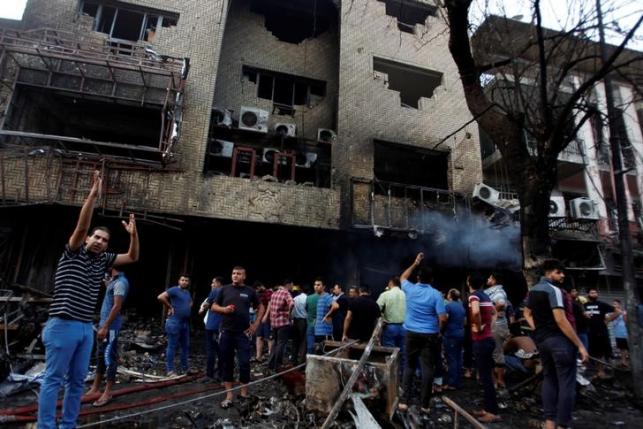
.jpg)

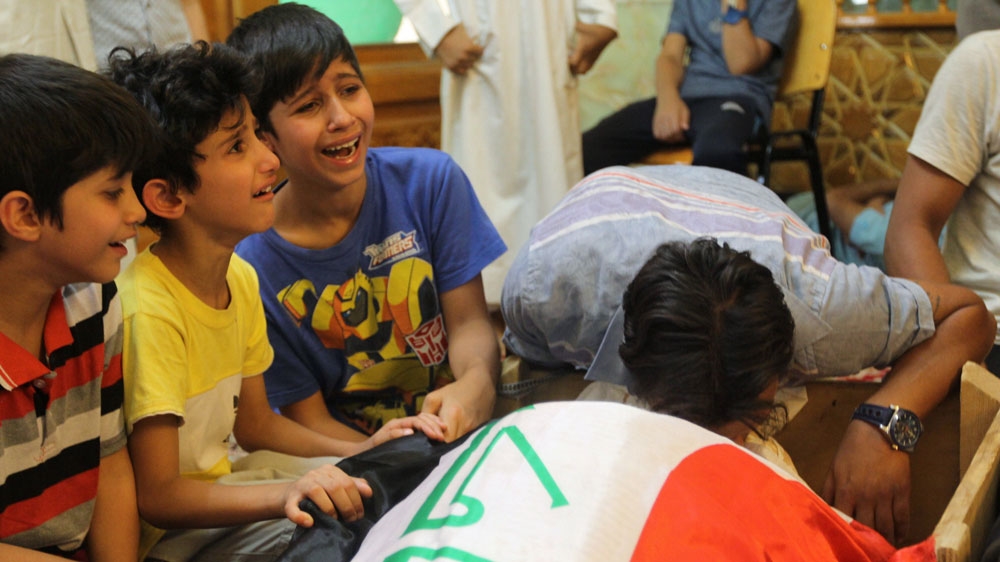
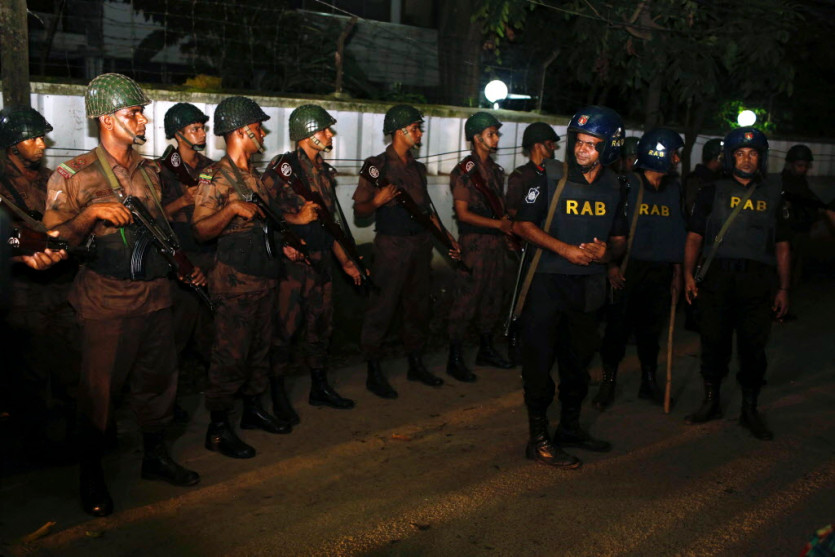
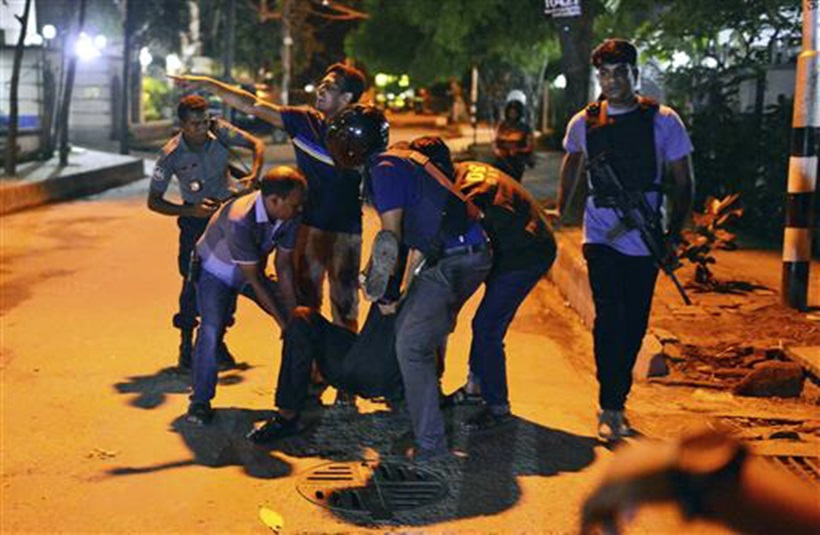
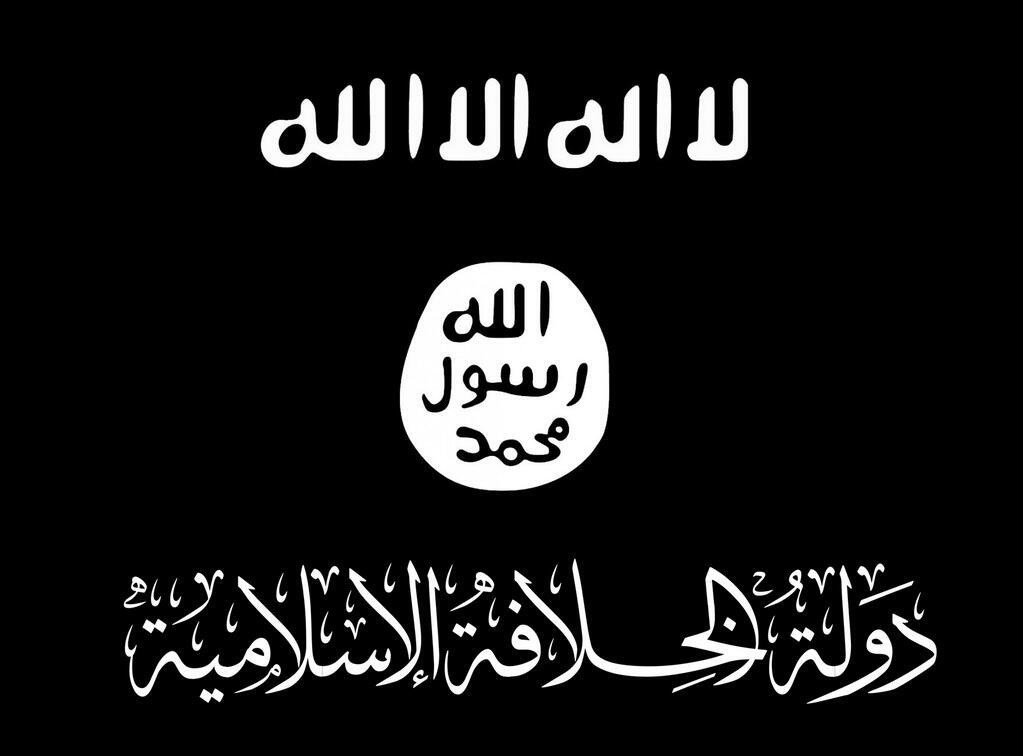
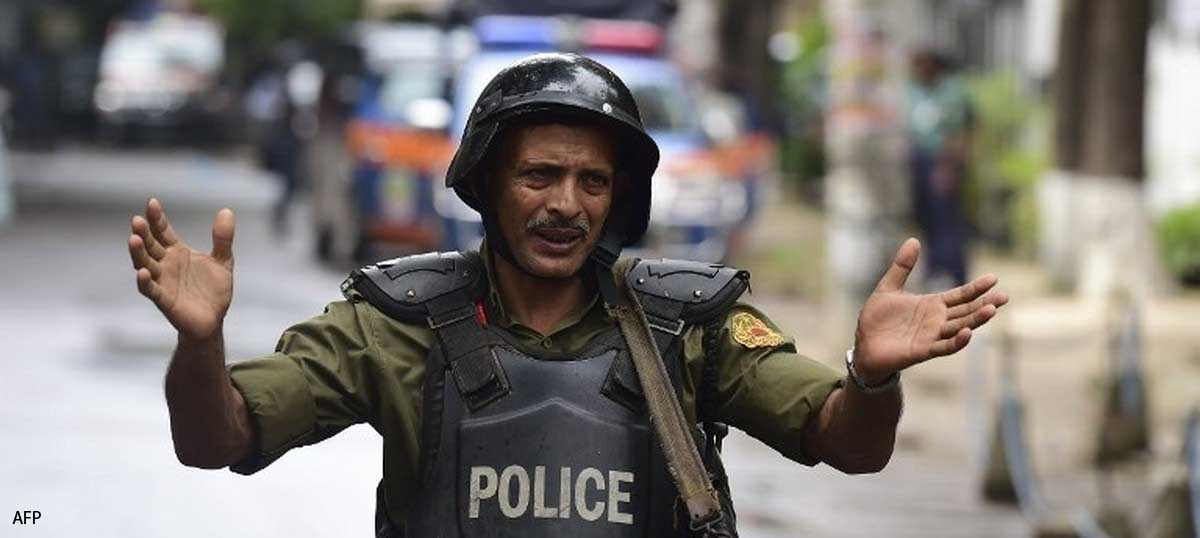
.jpg)
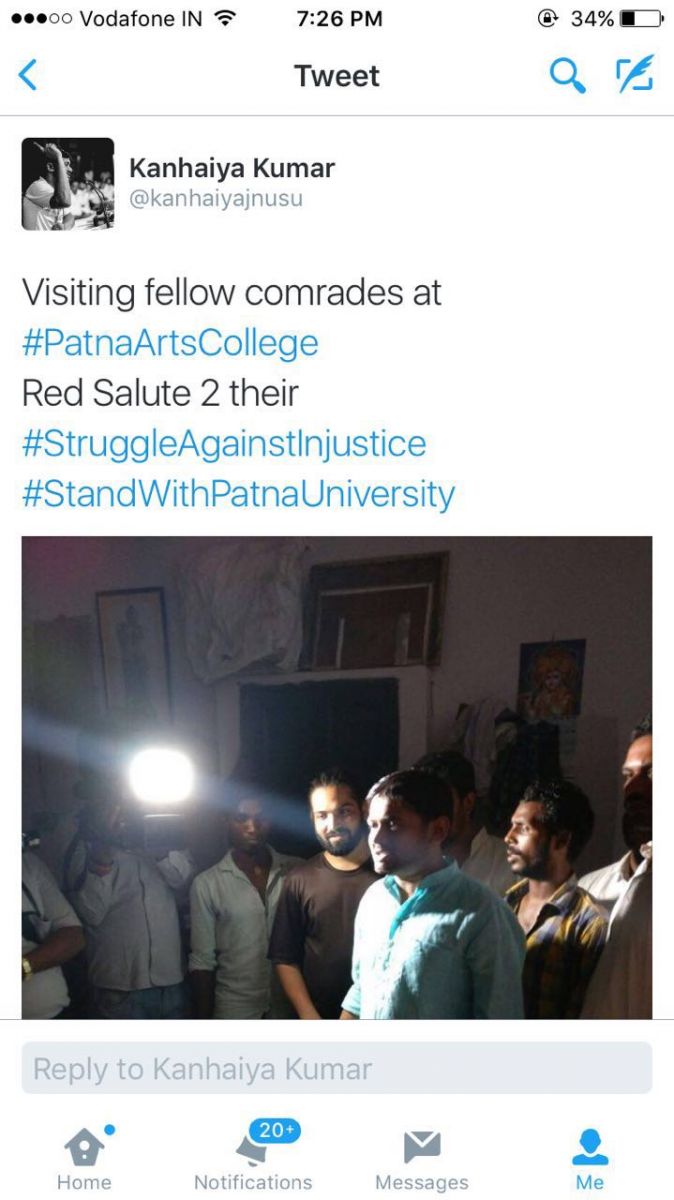
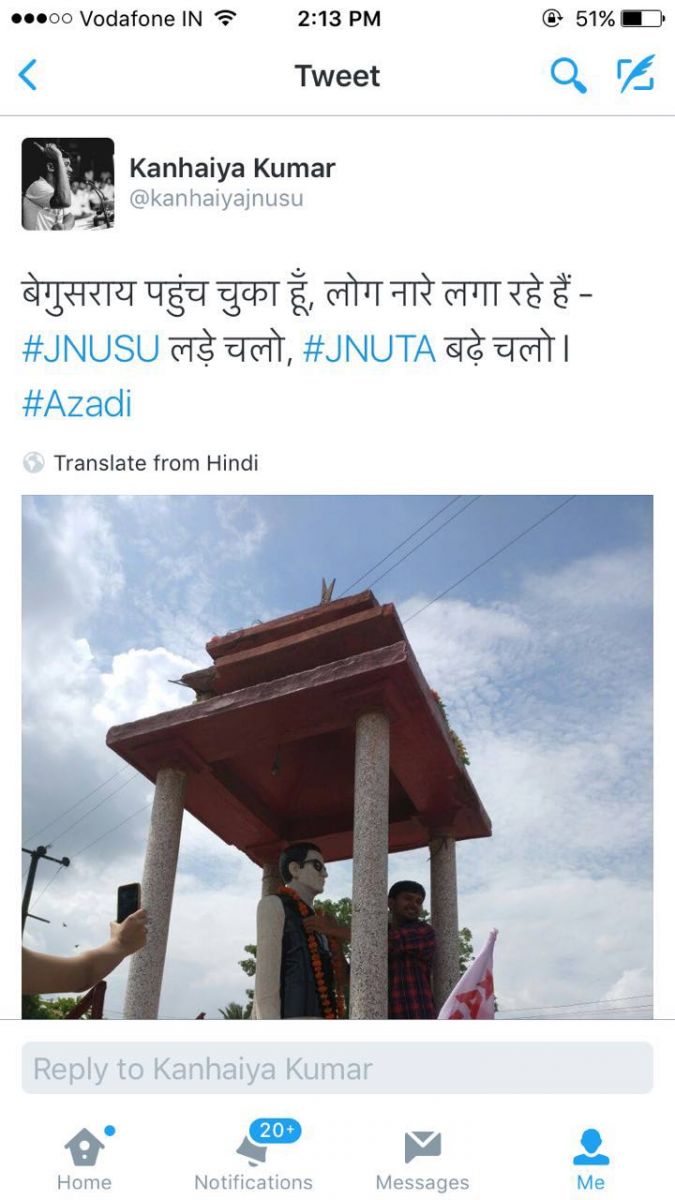
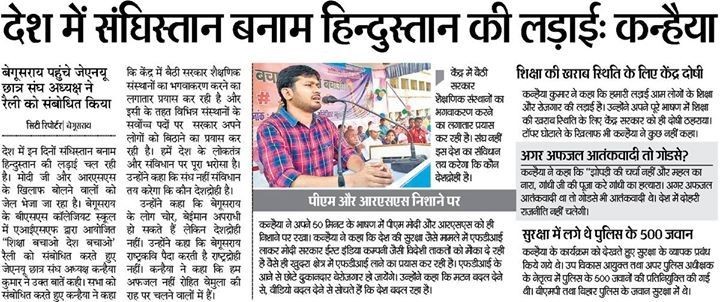
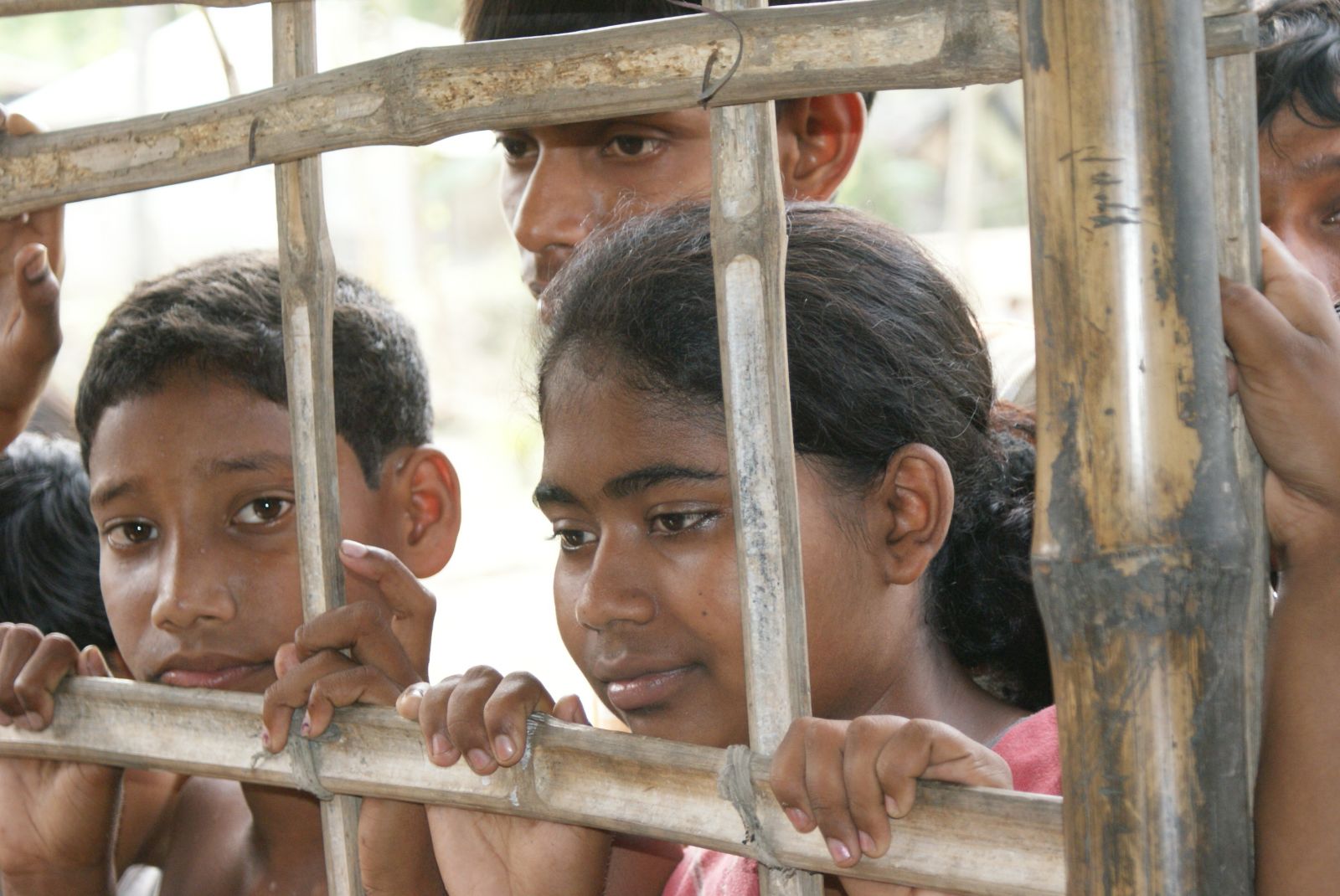
.jpg)